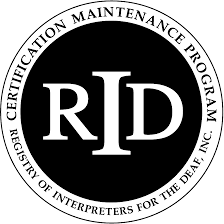记忆方法
1. 谐音“离的”
中文词源
rid 摆脱
来自古诺斯语 rhthja,清理土地,清理垃圾,来自 Proto-Germanic*reudijan,清理土地,来自 PIE*reudh,清理土地。后词义通用化,用以指摆脱,清除。
英语词源
- rid
-
rid: [13] The verb rid was borrowed from Old Norse rythja, ancestor of modern Swedish rödja, Danish rydde, and Norwegian rydja. This in turn went back to a prehistoric Germanic *rudjan. Its past participle rid has been used in the context be rid of, get rid of since the 15th century. Riddance is a 16th-century English coinage.
- rid (v.)
- c. 1200, "clear (a space); set free, save," from a Scandinavian source akin to Old Norse ryðja (past tense ruddi, past participle ruddr) "to clear (land) of obstructions," from Proto-Germanic *reudijan (cognates: Old High German riuten, German reuten "to clear land," Old Frisian rothia "to clear," Old English -royd "clearing," common in northern place names), from PIE root *reudh- "to clear land." The general sense of "to make (something) free (of something else)" emerged by 1560s. Senses merged somewhat with Northern English, Scottish, and U.S. dialectal redd. To get rid of (something or someone) is from 1660s. Related: Ridden; ridding.
权威例句
- 1. The proposals are an attempt to rid the country of political corruption.
- 这些提议试图使这个国家摆脱政治腐败。
- 2. Why couldn't he ever rid himself of those thoughts, those worries?
- 为什么他总是无法摆脱那些想法和担忧?
- 3. You'll never quite get rid of every last bit of grit.
- 无法把所有的沙砾都清除干净。
- 4. Cities upstream use the river to get rid of sewage.
- 上游的城市将污水排放到河里。
- 5. You seem in rather a hurry to get rid of me.
- 看起来你急于想摆脱我。

